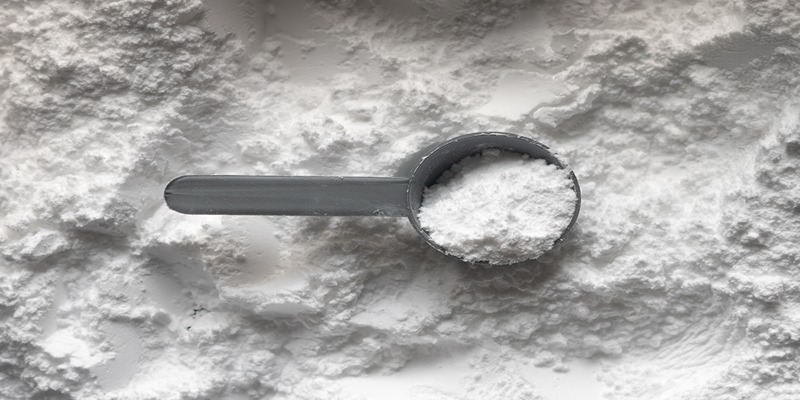Welcome to the realm of fitness supplements, where promises of gains and pitfalls intertwine. Among the myriad of options, creatine stands out, often hailed for its potential benefits. Yet, caution must accompany enthusiasm. Before adding that extra scoop to your shake, consider the delicate balance between reward and risk.
While creatine promises enhanced performance and muscle growth, overindulgence can lead to adverse effects. Understanding this fine line is crucial in navigating the complexities of supplementation, ensuring that you harness the power of creatine without stumbling into hazardous territory.
Understanding Creatine:
First things first, let's unravel the mystery of creatine. It's a naturally occurring compound found in foods like meat and fish, but it's also synthesized in the human body, primarily in the liver, kidneys, and pancreas. Its primary role? Energy production, particularly during short bursts of intense physical activity.
Creatine supplements have gained popularity among athletes and fitness enthusiasts due to their purported ability to enhance performance, strength, and muscle mass. These assertions are supported by a large body of research, highlighting creatine's ability to improve athletic performance, particularly in tasks demanding quick energy bursts, such as sprinting and weightlifting.
The Risks of Excessive Creatine Intake:
However, as with any supplement, moderation is key. Excessive creatine intake can pose several risks to your health and well-being. Let's delve into these potential pitfalls:
Kidney Strain:
One of the foremost concerns associated with excessive creatine intake revolves around its potential impact on kidney function. While moderate consumption is generally well-tolerated by healthy individuals, high doses may strain the kidneys.
This strain arises from the increased workload on these vital organs as they metabolize and excrete excess creatine. For individuals with pre-existing kidney conditions, such as kidney disease or impaired function, this added burden can exacerbate their condition, potentially leading to complications.
Dehydration and Electrolyte Imbalance:
Creatine's propensity to draw water into muscle cells can enhance muscle size and strength. However, if sufficient fluid intake is not maintained, this water retention could result in dehydration.
Furthermore, the influx of water into cells can disrupt electrolyte balance, potentially causing muscle cramps and discomfort. To mitigate these risks effectively, it's essential to prioritize hydration and electrolyte replenishment when supplementing with creatine.
Gastrointestinal Distress:
Some people may have digestive problems, such as bloating, diarrhea, or stomach discomfort, after using creatine supplements. These symptoms are often more prevalent with certain forms of creatine, such as creatine monohydrate, and may subside as the body adjusts to the supplement.
However, persistent gastrointestinal distress can detract from the benefits of creatine supplementation and may indicate the need for dosage adjustments or alternative supplement forms.

Potential for Long-term Health Implications:
While research on the long-term effects of creatine supplementation is ongoing, there is concern that chronic, high-dose intake may have adverse health implications beyond the immediate risks mentioned. Some studies suggest a potential link between prolonged creatine use and increased risk factors for certain conditions, such as cardiovascular disease.
While these findings are not definitive, they underscore the importance of moderation and periodic reassessment of creatine supplementation practices to minimize potential long-term risks.
Finding the Sweet Spot
Finding the "sweet spot" with creatine supplementation is paramount in the quest for fitness excellence. This delicate balance involves optimizing the benefits while mitigating potential risks. Here's how to navigate this terrain effectively:
Start Low, Progress Slow:
Begin your creative journey with a conservative dosage, typically around 3-5 grams daily. This modest approach allows your body to adapt gradually, minimizing the likelihood of adverse effects.
Starting low also enables you to gauge your tolerance and response to the supplement. Consider gradually increasing the dosage as your body adjusts, but always within recommended limits.
Choose the Right Form:
Creatine is available in various forms, each with its unique characteristics. Creatine monohydrate remains the most researched and widely used form, offering excellent efficacy and cost-effectiveness.
However, alternatives like creatine hydrochloride and buffered creatine boast enhanced solubility and potential benefits for those prone to digestive issues. Selecting the form best suits your needs can optimize absorption and minimize gastrointestinal discomfort.
Timing Is Key:
When it comes to creatine supplementation, timing matters, while there's no universally agreed-upon "optimal" time, many athletes prefer to take creatine pre- or post-workout to capitalize on its performance-enhancing effects.
Consuming creatine alongside a source of carbohydrates and protein can enhance uptake and utilization by muscle cells, maximizing its benefits. Experiment with different timing strategies to identify what works best for your body and training regimen.
Stay Hydrated:
Creatine's propensity to draw water into muscle cells underscores the importance of staying adequately hydrated. Ind dehydration reduces performance and raises the possibility of adverse effects, including cramping in the muscles and upset stomach.
Aim to drink plenty of water throughout the day, especially when supplementing with creatine. Prioritize hydration before, during, and after workouts to maintain optimal fluid balance and support overall health.
Listen to Your Body:
Above all, listen to your body's cues when incorporating creatine into your routine. Pay attention to how you feel during and after supplementation, noting any changes in performance, muscle growth, or well-being.
If you experience adverse effects such as bloating, cramping, or digestive discomfort, reassess your dosage and hydration practices. Remember that different people react differently to creatine, so you should adjust your strategy depending on your experience.

Conclusion: Balancing Risk and Reward
In conclusion, while creatine supplementation offers potential benefits for enhancing performance and muscle growth, it's essential to approach it with caution and mindfulness of potential risks. Understanding the delicate balance between reward and risk is crucial in effectively navigating the complexities of supplementation.
By starting with conservative dosages, choosing the correct form, timing consumption strategically, staying hydrated, and listening to your body's signals, you can optimize the benefits of creatine while minimizing the likelihood of adverse effects. Remember, moderation and individualized approaches are vital to harnessing the power of creatine safely and effectively on your fitness journey.







